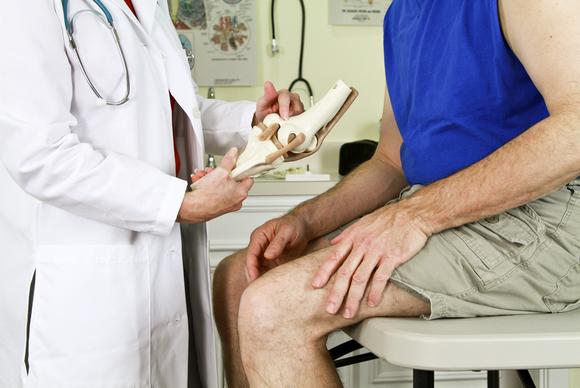View Providers

A Personal Decision
Deciding that it’s time to see an orthopedic surgeon can be a relief and a cause of anxiety. Most likely, your primary care doctor has recommended you see an orthopedic surgeon. How do you find the best orthopedic surgeon who is right for you? Here are important factors to keep in mind.

1. Get Referrals
To get started, ask your primary care doctor for a referral list. Family, friends and other healthcare professionals are also good resources to ask for recommendations. Take the time to research the doctors’ credentials and experience on Healthgrades.com. As you narrow down your list, call to make consult appointments to meet and interview each orthopedic surgeon.

2. Research the Orthopedic Surgeon’s Credentials
Board certification is an important factor to consider when you are choosing an orthopedic surgeon. Certification tells you that the doctor has the necessary training, skills and experience to provide orthopedic care. Also confirm that the orthopedic surgeon has no history of malpractice claims or disciplinary actions. You can find the orthopedic surgeon’s medical school, training hospital, certifications, and malpractice and disciplinary history on Healthgrades.com and state websites.

3. Consider the Orthopedic Surgeon’s Experience
When it comes to specialized medical or surgical care for complex orthopedic problems, the more experience a doctor has, the better your results are likely to be. Ask how many patients with your specific condition the orthopedic surgeon has treated. If you know you need a specific procedure, ask how many of the procedures the doctor has performed and find out about complication rates— complications the doctor has encountered as well as your own risk of complications.

4. Consider Gender
It is important for you to feel comfortable with your orthopedic surgeon’s gender because you will need to openly discuss personal information. Be sure to ask the orthopedic surgeon about his or her recent training and experience specifically related to your condition and your gender. Doctors are becoming more aware of anatomical sex differences and gender attitude differences in treating orthopedic patients. As a result, orthopedic programs specific for each gender are becoming more common.

5. Research Hospital Quality
Your doctor’s hospital is your hospital. For this reason, consider the quality of care at the hospital or ambulatory surgery center where the orthopedic surgeon can treat patients. Hospital quality matters to you because patients at top-rated hospitals have fewer complications and better survival rates. Additionally, consider whether the hospital’s location is important to you. After an orthopedic procedure, frequent follow-up and rehabilitation visits may mean you need a convenient location.

6. Evaluate Communication Style
Choose an orthopedic surgeon with whom you are comfortable talking and who supports your information needs. When you first meet the orthopedic surgeon, ask a question and notice how he or she responds. Does he or she welcome your questions and answer them in ways that you can understand? During the first visit did you feel rushed or engaged? Find an orthopedic surgeon who shows an interest in getting to know you, who will consider your treatment preferences, and who will respect your decision-making process.

7. Read Patient Reviews
Reading what other people have to say about a doctor can provide insight into how a doctor practices medicine, as well as how his or her medical practice is operated. Patient reviews typically ask people about their experience with scheduling appointments, wait times, office environment, and office friendliness. You can learn about how well patients trust the doctor, how much time he or she spends with their patients, and how well he or she answers questions.

8. Know What Your Insurance Covers
Your insurance coverage is a practical matter. To receive the most insurance benefits and pay the least out-of-pocket for your care, you may need to choose an orthopedic surgeon who participates in your plan. You should still consider credentials, experience, outcomes, and hospital quality as you select an orthopedic surgeon from your plan.




